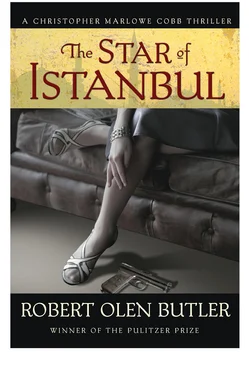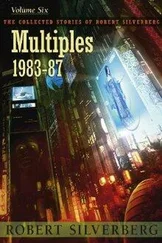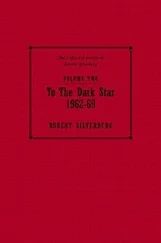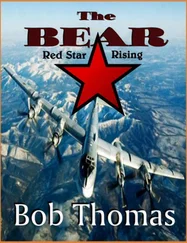The Turks didn’t drink liquor, by their religion. They were pretty seriously committed to that, most of them. But they made up for it by more or less constantly drinking coffee; Allah apparently disapproved of altering yourself into fuzzy fumbliness with booze but was quite tolerant of you sparking up your engines with caffeine. Some of the coffeehouses were worth State Street, like the one I’d just stepped into, but a divan under wooden planks wasn’t the lowest-class incarnation either. That would be the undercapitalized joint sprung up in any bit of shade under a tree or beside a wall or even improvised with a couple of chairs out in the middle of one of the common, rubbled, bare-earth plots between Istanbul buildings. Coffee and tobacco and endless talk: these were the left and right ventricles of Turkish life. For the men, of course. The women were mostly invisible behind the window latticework in the wooden houses. I wondered what their preferred vice was.
The air before me was laced with two strong smells, the distinct bite of the Turkish coffee and the smell of the tunbeki, the water-pipe tobacco, the exhalations from which were befogging the air already, though it was barely two hours after sunrise.
I knew the etiquette. There were more than a dozen men in fezes, sitting in twos and threes on couches and tables. As I entered, the conversations all stopped and all eyes moved to me. I recalled that movement of eyes at the London Docks. But this was a different thing altogether. There might have been a freethinker or two amongst these men, but most of them were Muslims; Ottomans, no less, so they were Muslims who had a long history not unlike Christian history — namely, marching into countries where a bunch of folks thought differently than you about life and God and you ground your righteous heel into their throats. I was an infidel. But not inside here. In this house — and on the most threadbare couch in the most desolate, rubble-strewn vacant lot — coffee and tobacco were the common sacraments of the whole human race.
So to each man in the room individually I gave a Merhabah —saying the word and softly thumping my heart with my fist — and each man did the same to me. And revved by coffee and smoothed by tobacco and huddled together within these walls in fellowship and endless talk, these boys truly meant it: I offer my heart to you as a friend, sharing, as one, these basic pleasures of life.
One of these men, the owner of the coffeehouse with the yellow dog, turned from the bar along the back wall, with its cauldron of live coals and its line of small, long-handled, curve-spouted pots. He stepped away from his coffeemaking and approached me. We did one more Merhabah , one more thump to the chest, and the man said, “Mr. Cobb?”
“Yes.”
“Follow me, please.”
He led me to a door at the back and into a narrow hallway, dim and full of the smells of the front of the place, but not the current versions. These smells long ago had been brewed and smoked into the very walls and floor of the place. A fresher smell of tobacco, though, came from the last of several open doorways along the hall, the others giving onto dark rooms, this one lit with an electric bulb hanging from the ceiling.
As soon as I stepped into the doorway I sensed the Turk behind me slide away and vanish.
The man before me was no doubt my American embassy contact, but at first glance he seemed in some ways to be of a different sort. He was sitting crosslegged in his stocking feet on a divan at the back wall, his suitcoat folded beside him, a red fez sitting on top of it, the long coil of the leather tube of a water pipe in his mouth and a cloud of smoke around his head. The head itself was topped with a dense bed of feed-corn-yellow curls.
His tie, however, was still firmly knotted at his throat, and the eyes that lifted from the vase at the bottom of the water pipe on the tabletop before him were the instantly engaged and fixedly focused eyes I’d seen before in the boys doing this kind of work. That fixedness: somehow it felt cynical, ruthless even. I’d seen the look in the eyes of certain lifelong Chicago ward politicians when you peeked behind their public demeanor by getting them on the verge of drunk, or by getting them mad in front of other people they didn’t want to show that side of themselves to. I was thinking now in retrospect that I’d seen this look in Trask and Metcalf both. Maybe even Smith. Maybe I had it too, that look. Maybe it was also the look of a good news reporter.
This guy gave me that look but then raised his hand as if to say Hold your horses for a moment . And those cynical eyes closed to savor the smoke of the coarse, strong Persian weed.
“Ah,” he said, his eyes still closed. “ Tunbeki .” Which was the weed. I could imagine him dining with Metcalf at the Carlton and the two of them filling the dining room with their moans of pleasure.
The eyes opened and resumed their stare as if the divine tunbeki had utterly failed in its high purpose of soothing the spirit of the body it filled.
The man put the pipe aside, unfurled his legs, and rose.
I stepped to him.
We shook hands. “You’re Cobb.”
“Yes.”
“I’m Ralph Hansen. Cultural attaché, American embassy.”
As we shook — his was firm — I said, “Culture, is it?”
“Didn’t you notice my fez?”
“The locals out front are still wearing theirs.”
“I’m off duty.”
And he started to refurl himself on the divan. “I waited on the coffee till you arrived,” he said. Settled now, he patted the seat. “Join me.”
I took off my coat and folded it and took off my shoes and sat cross-legged beside him. He passed the pipe to me. I took a drag of the tunbeki , and it went straight to the brain, acting smooth but working to unsettle things. I passed the pipe back to him.
He took a very big drag, and the owner appeared in the doorway with a brass tray and jingling cups and glasses. He set them on the low table before us. Two of each of these: a three-finger coffee cup on a saucer with a dark brew crowding the top and a glass of water, boiled pure.
We sipped the water for a while first, which was the Turks’ way. Then we drank the coffee by lifting cup and saucer both. Hansen sipped the water quietly and the coffee noisily. I wasn’t sure if that was the Turks or just Hansen, so I stayed quiet on both. The coffee itself was sludgy and heavy but not as bitter as it looked; pretty good, actually, though eventually the very finely ground beans floated up with each sip and there was no alternative — the Turk would wish none — to drinking the grinds down with the coffee.
We did this in silence for a few moments, and then Hansen said, “Any contact?”
“How did you know?”
He slid his eyes to me. However much he seemed to be under the influence of the Turks’ coffee and tobacco, these eyes seemed professionally acute. “Know?” he said.
“That Brauer is dead.”
He pursed his lips. “You waltzed into town with the star of the show.”
Of course they were watching. From the quay onward.
“Just curious,” Hansen said. “Was there a fuss on the Mecklenburg a few days ago?”
“I disposed of the body and its bags,” I said.
Hansen whistled softly through his teeth. “Good man,” he said.
“That was all I took care of,” I said. “The disposal.”
He set his coffee down. It was the only sign that he was intrigued. When his eyes came back to me, they had not changed.
I set my coffee beside his.
And I told him all the things he needed to know about the passage to Istanbul. Everything but the extent of my relationship with Selene.
Читать дальше












